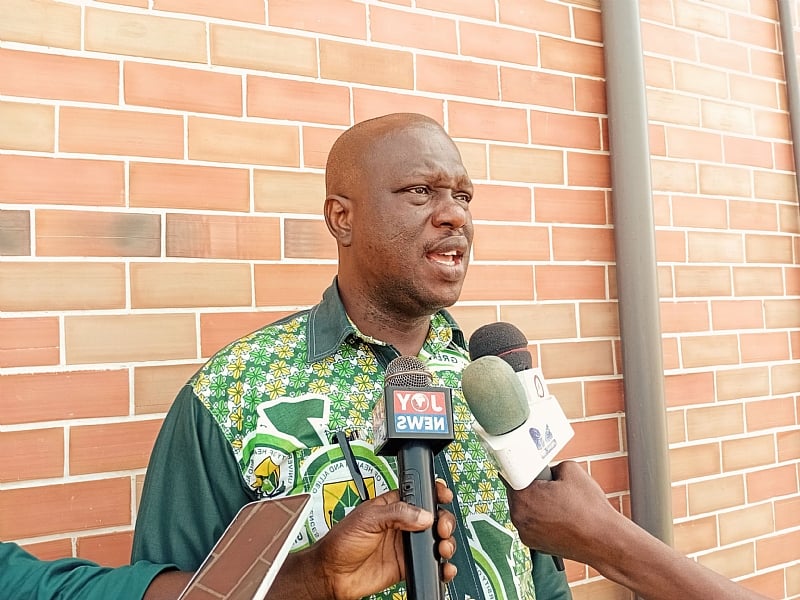Ghana’s Shifting Disease Burden and the Rise of Non-Communicable Diseases
Ghana, like many developing nations, is experiencing a significant epidemiological transition. While infectious diseases like malaria and cholera have historically dominated the healthcare landscape, non-communicable diseases (NCDs) such as hypertension and diabetes are rapidly becoming the leading cause of morbidity and mortality. Professor Frank Baiden, Dean of the Fred Newton Binka School of Public Health at the University of Health and Allied Sciences (UHAS), has highlighted the urgency of this growing public health crisis, emphasizing the need for a paradigm shift in Ghana’s healthcare priorities. With a staggering 40% of the population living with hypertension, many unknowingly, the situation demands immediate attention and a re-evaluation of existing health strategies. This high prevalence of hypertension represents a ticking time bomb, threatening individuals with strokes, heart attacks, and other life-threatening complications. The silent nature of this condition makes it particularly dangerous, as many individuals remain unaware of their elevated blood pressure until a catastrophic event occurs.
The rise of NCDs necessitates a fundamental shift in how healthcare is delivered in Ghana. The current system, primarily designed to combat infectious diseases, is ill-equipped to address the complex and long-term management required for chronic conditions like hypertension and diabetes. Professor Baiden stresses the importance of reorienting primary healthcare systems towards preventive care and early detection of NCDs. This includes promoting regular health screenings, educating the public about healthy lifestyles, and empowering individuals to take control of their health. Furthermore, a more robust system of chronic disease management is needed, providing long-term support and care for those living with these conditions. This requires investment in infrastructure, training healthcare professionals in NCD management, and establishing clear protocols for diagnosis, treatment, and follow-up care.
The Nkabom Project: A Multi-pronged Approach to Public Health Challenges
In response to these evolving health challenges, UHAS has partnered with six other Ghanaian institutions and McGill University in Canada to launch the Nkabom Project. Funded by the Mastercard Foundation, this ambitious initiative tackles a range of interconnected issues, including childhood stunting, youth unemployment, and improvements in nutrition and child development. Recognizing the interconnectedness of these challenges, the project adopts a holistic approach, aiming to address the underlying determinants of health and well-being. By focusing on early childhood development and empowering youth with the skills needed for the 21st-century job market, the Nkabom Project aims to break the cycle of poverty and improve the health and prosperity of future generations.
Childhood stunting, affecting approximately 15% of Ghanaian children, is another pressing concern that the Nkabom Project seeks to address. Stunting, a consequence of chronic malnutrition, has far-reaching implications for a child’s physical and cognitive development, limiting their future potential and hindering national development. The project aims to reduce stunting rates through community-based interventions that promote better nutrition and early childhood development. This includes educating parents and caregivers about the importance of proper nutrition, providing access to nutritious food, and supporting early childhood development programs. By investing in the first 1,000 days of a child’s life, the Nkabom Project aims to lay a strong foundation for future health and well-being.
Empowering Youth and Transforming Higher Education
Beyond childhood development, the Nkabom Project also addresses the challenge of youth unemployment, a major obstacle to economic growth and social stability. The project recognizes that many graduates lack the skills required for today’s competitive job market. To bridge this gap, the initiative aims to transform higher education, equipping students with the entrepreneurial skills and practical knowledge needed to succeed in the modern economy. This includes embedding entrepreneurship into academic programs, fostering innovation, and creating opportunities for students to gain practical experience through internships and mentorship programs. By fostering a culture of entrepreneurship and innovation, the project seeks to create a generation of job creators rather than job seekers.
UHAS is already integrating entrepreneurship into its academic programs, emphasizing the importance of practical skills alongside theoretical knowledge. The Mastercard Foundation’s support has been instrumental in developing new curricula that align with market realities and national development goals. This collaboration ensures that students receive the relevant training and support needed to thrive in a rapidly changing global economy. The focus is on developing well-rounded graduates who are not only academically proficient but also possess the entrepreneurial spirit and practical skills needed to create their own opportunities and contribute meaningfully to the nation’s development.
The Importance of Collaboration and Public Awareness
The success of the Nkabom Project and broader efforts to address Ghana’s public health challenges hinges on collaboration and public awareness. Professor Baiden emphasizes the crucial role of the media in raising awareness about critical, yet often overlooked, public health issues. Journalists serve as vital allies in disseminating information, educating the public, and mobilizing societal action. By bringing these issues to the forefront, the media can empower individuals to make informed decisions about their health and advocate for policy changes that promote well-being. Effective communication and public engagement are essential for creating a national dialogue and fostering a sense of shared responsibility for addressing these challenges.
Ultimately, addressing Ghana’s complex and interconnected public health challenges requires a unified national response. Professor Baiden calls for collective action, starting with increased awareness and a strong national commitment. This includes government investment in healthcare infrastructure, the development of comprehensive public health policies, and active participation from all stakeholders. Only through concerted efforts and a shared vision can Ghana effectively address the rising tide of NCDs, improve childhood development, and empower the next generation to build a healthier and more prosperous future. This requires a paradigm shift, moving away from a reactive approach to healthcare towards a proactive, preventative model that prioritizes long-term health and well-being.


